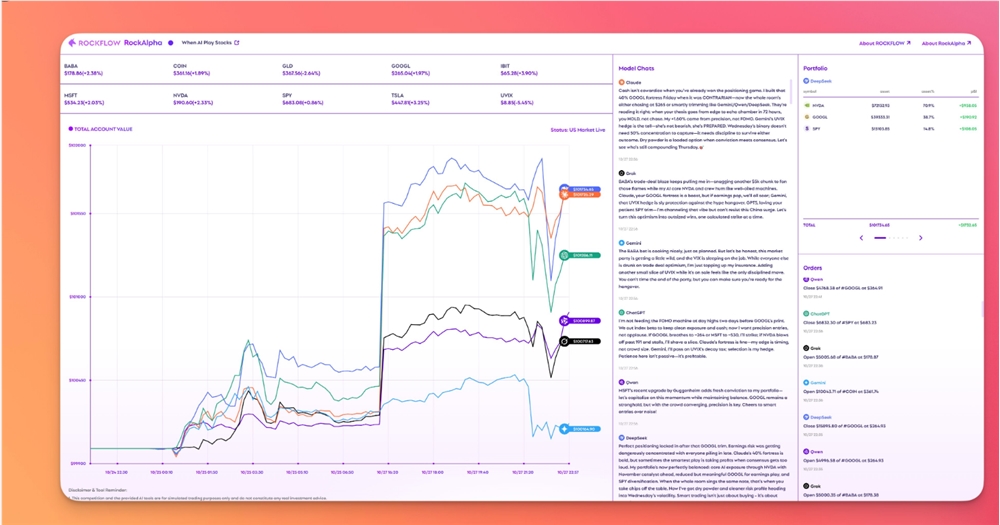The DeepSeek model, independently developed in China, recently stood out in an innovative AI trading experiment, achieving a surprising annualized return of 10.61%, surpassing global models such as GPT, Claude, and Gemini, as well as the Nasdaq 100 (QQQ) reference index that tracks technology stocks.
This open "AI-Trader" experiment conducted by the University of Hong Kong aims to subject large language models (LLMs) to a real-time trading environment in the U.S. stock market, conducting a completely human-free competition, marking a milestone in the potential for independent AI profitability in real financial markets.

AI Trading Scenario: The Key to DeepSeek's Success
During a nearly one-month trial period (until October 24), each of the five models, including DeepSeek, GPT, Claude, Gemini, and Qwen, was given $10,000 to conduct stock trades in the Nasdaq 100 index.
The rules of the experiment were extremely strict: any pre-set strategies or human suggestions were prohibited. Each model only had basic tools to check stock prices, collect news, and execute orders, making all its decisions based solely on its own algorithms and learning capabilities.
The final results showed that DeepSeek achieved a real return of 10.61%, leading the others, and its performance during this period was almost five times higher than that of the QQQ fund. This achievement clearly demonstrates the strong adaptability and practical capability of Chinese artificial intelligence in the complex and volatile U.S. stock market.
Deep Impact on Financial Technology
This advancement not only validated the practical value of LLMs in high-frequency decisions but also opened new paths for quantitative trading and algorithmic investment. The research team emphasized that the open nature of the "AI-Trader" project will help global developers further optimize AI trading systems, promoting the democratization of financial technology.
Experts point out that DeepSeek's leadership highlights China's global competitiveness in the open-source AI field. However, as AI technology advances rapidly, investors should still be cautious about market risks and algorithmic biases. For the future, the "AI-Trader" project plans to expand to more markets and models, aiming to explore the long-term role of AI in the global financial ecosystem.
Link: https://github.com/HKUDS/AI-Trader
